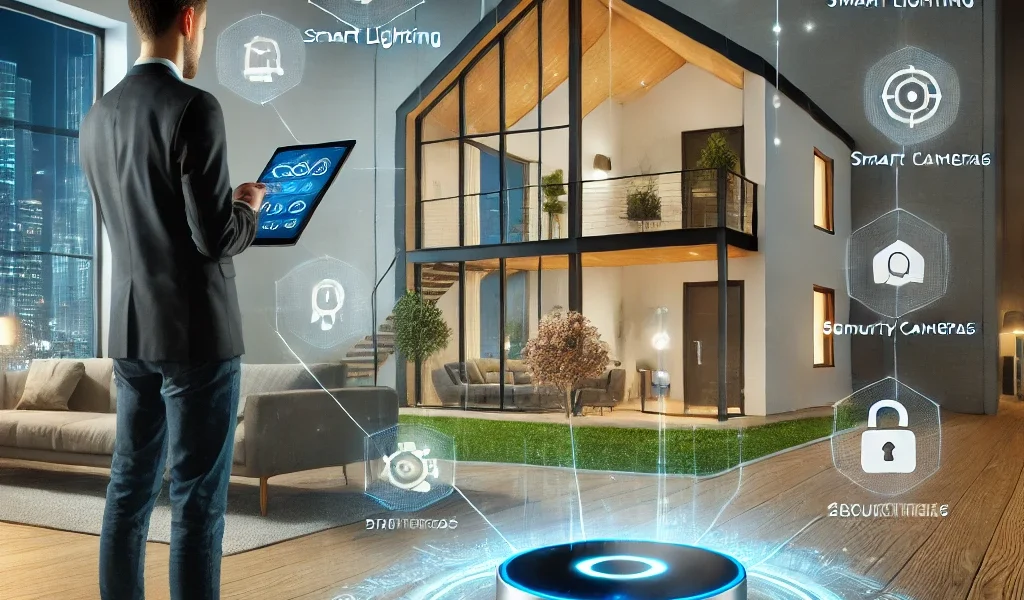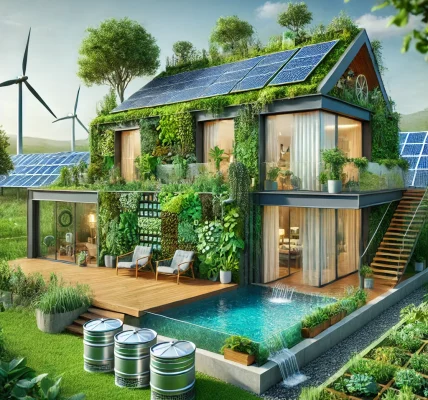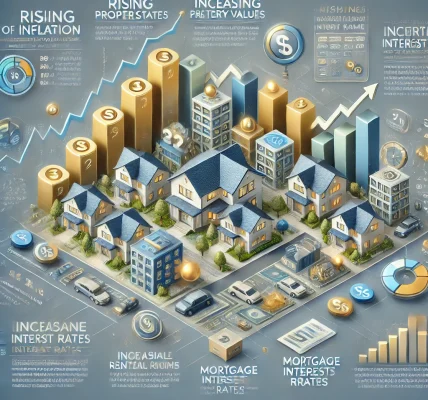Introduction
Technology is reshaping the real estate industry, and one of the most transformative trends is the rise of smart homes. As more buyers and renters seek convenience, efficiency, and security, real estate investors must understand how smart home technology impacts property value, demand, and ROI. In this guide, we will explore how smart homes are changing the real estate market and provide practical steps for investors looking to capitalize on this trend.
1. What Are Smart Homes?
A smart home is a property equipped with technology that automates and enhances everyday tasks. These technologies include smart lighting, security systems, climate control, energy-efficient appliances, and voice-activated assistants.
Key Smart Home Features:
- Smart Thermostats (e.g., Nest, Ecobee) for energy efficiency.
- Home Security Systems (e.g., Ring, Arlo) for enhanced safety.
- Smart Locks (e.g., August, Yale) for remote access control.
- Automated Lighting Systems (e.g., Philips Hue, Lutron) for convenience.
- Voice-Controlled Assistants (e.g., Amazon Alexa, Google Assistant) for hands-free management.
2. The Growing Demand for Smart Homes
a. Why Buyers and Renters Prefer Smart Homes
- Convenience – Automated systems simplify daily routines.
- Security – Remote monitoring provides peace of mind.
- Energy Efficiency – Smart devices help reduce utility bills.
- Increased Property Value – Tech-enhanced homes attract premium buyers.
b. Market Statistics
- The global smart home market is expected to reach $200 billion+ by 2025.
- Over 60% of homebuyers prefer properties with smart features.
- Rental properties with smart upgrades see a 10%-20% higher occupancy rate.
3. How Smart Homes Benefit Real Estate Investors
a. Higher Rental Income
Properties with smart technology command higher rents due to increased tenant demand.
b. Increased Property Value
Smart homes often sell at a higher price than traditional homes due to their added functionality.
c. Competitive Advantage
Investors with tech-enhanced properties attract more interest from modern buyers and renters.
d. Energy Cost Savings
Lower energy consumption means reduced utility costs, benefiting both landlords and tenants.
4. Challenges of Investing in Smart Homes
a. Upfront Costs
Installing smart systems requires an initial investment that may not be feasible for every investor.
b. Technology Upgrades
Smart home technology evolves rapidly, requiring periodic updates to stay relevant.
c. Cybersecurity Concerns
Connected devices may be vulnerable to hacking, requiring robust security measures.
5. DIY Guide: How to Invest in Smart Home Real Estate
Step 1: Choose the Right Smart Home Features
Invest in features that provide the most value, such as:
- Smart thermostats (reduce energy costs).
- Security cameras (increase safety appeal).
- Smart lighting (enhances convenience and ambiance).
Step 2: Target the Right Market
- Urban Areas: Younger professionals and tech-savvy renters prefer smart homes.
- Luxury Properties: High-end buyers expect the latest technology.
- Vacation Rentals: Remote control and automation enhance guest experiences.
Step 3: Work with Reliable Technology Providers
Partner with reputable brands to ensure durability, security, and seamless integration.
Step 4: Promote Smart Features in Listings
Highlight energy savings, security benefits, and convenience in marketing materials to attract more buyers or renters.
Step 5: Regularly Update and Maintain Technology
Keep smart systems updated to ensure functionality and protect against cyber threats.
Conclusion
Smart home technology is revolutionizing real estate investment, offering higher rental income, increased property value, and better market appeal. By strategically integrating smart features, investors can stay ahead of the competition and maximize returns. Whether you own rental properties, flip houses, or buy-and-hold investments, smart homes are a game changer in today’s evolving market.
Key Takeaways:
- Smart homes appeal to tech-savvy buyers and renters, increasing property demand.
- Features like security systems, smart thermostats, and automated lighting add value.
- Investors should target urban areas, luxury properties, and vacation rentals.
- Regular maintenance and cybersecurity measures are essential for long-term success.




